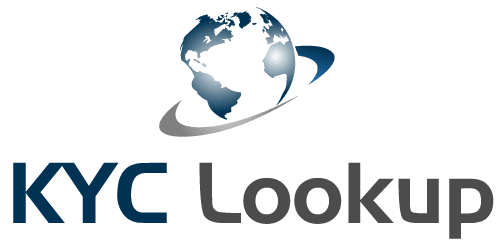21 Nov Enhance Your Future: AML KYC Certifications and Online Courses
In a rapidly evolving financial landscape, Anti-Money Laundering (AML) and Know Your Customer (KYC) compliance have never been more critical. Recent updates to regulations, combined with the rising demand for stringent AML practices, have reshaped the way financial institutions and professionals approach these essential components. This Blog post looks into the importance of AML, the role of AML in the financial industry, recent changes affecting AML and the value of AML KYC certification and online courses, all while highlighting a few case studies to get a pulse on understanding AML.
The Evolving AML Landscape in 2023
The year 2023 brings significant changes to the AML landscape, reflecting a growing awareness of the need for enhanced anti-money laundering measures. Recent amendments to regulations around the world aim to combat increasingly sophisticated financial crimes.
Here’s a snapshot of the key developments affecting AML this year:
Heightened Scrutiny: Regulatory authorities are increasing their scrutiny of financial institutions. They are demanding more transparency and diligence when it comes to AML and KYC practices.
Global AML Cooperation: Cross-border collaboration to combat money laundering is on the rise. Financial institutions must adapt to international AML standards to ensure consistency and integrity in their compliance efforts.
Emerging Technologies: The integration of advanced technologies, such as artificial intelligence and block chain, is reshaping the AML landscape. These technologies assist in automating processes and improving accuracy.
Crypto currency Regulations: The rise of cryptocurrencies has raised concerns about their potential use for money laundering. As a result, more countries are enacting regulations to monitor and control cryptocurrency-related transactions.
The Importance of AML
Anti-Money Laundering is not just a legal obligation; it is essential in safeguarding the financial system’s integrity. AML aims to prevent and detect illegal financial activities, including money laundering and terrorist financing. By maintaining strict AML practices, we not only protect the financial industry but also ensure the safety of our economies and societies.
Understanding AML: Its Role and Significance
AML encompasses a set of practices and regulations designed to mitigate the risk of money laundering and financial crimes.
The primary objectives of AML are to:
- Identify and verify the identities of customers (KYC)
- Monitor and report suspicious transactions
- Establish risk-based policies and procedures
- Provide ongoing training for employees
AML plays a pivotal role in maintaining the trustworthiness of financial institutions, ensuring they are not exploited by criminals seeking to legitimize their illicit funds. It helps in preserving the reputation of financial entities and preventing legal repercussions.
Anti-Money Laundering (AML) Standards in the United States
In the United States, determining the applicable AML requirements can be intricate. The BSA statute itself is not self-enacting and necessitates implementation through regulations. The specific regulatory requirements for various types of financial institutions and businesses governed by the BSA differ in scope and intricacies. Although all these businesses fall under the BSA statute’s definition of financial institutions, only certain ones are officially designated as financial institutions under BSA regulations.
Notably, some BSA requirements solely pertain to businesses falling within the regulatory definition of a financial institution under the BSA. Since 2002, over 40 financial institutions subject to AML regulations have either pleaded guilty or settled with the Department of Justice. These cases often revolve around alleged breaches of the anti-money laundering (AML) regulatory standards outlined in the BSA, such as failure to uphold an adequate AML Program or neglecting to file mandatory suspicious activity reports (SARs).
An illustrative instance occurred in December 2022 when Danske Bank pleaded guilty to deceiving U.S. banks regarding the AML controls of its Estonian subsidiary, resulting in a forfeiture of $2 billion to the United States. Although the case related to money laundering, the basis for prosecution was the crime of bank fraud.
Rise in Demand for Ensuring Complete Compliance
The rise in financial crime, coupled with the complexity of modern transactions, has led to an increased demand for robust AML measures. Financial institutions are now under immense pressure to ensure complete compliance. Failure to meet regulatory requirements can result in severe penalties, legal consequences, and significant reputational damage. Thus, there is a growing demand for professionals well-versed in AML practices.
The Value of AML KYC Certification and AML Courses Online
To navigate the complex AML landscape successfully, AML KYC certification and online courses have become invaluable assets. Here’s why:
Comprehensive Knowledge: AML KYC certification provides professionals with in-depth knowledge of AML regulations, practices, and industry-specific insights.
Career Advancement: Certification adds credibility to your resume and opens doors to career advancement opportunities.
Online Learning: AML courses online offer flexibility, allowing professionals to update their knowledge while working full-time.
Up-to-Date Content: Online courses are frequently updated to reflect the latest AML developments and amendments.
At KYC Lookup, we provide extensive online AML courses and KYC training to empower your team with the necessary expertise to combat fraud and efficiently handle risks. Stay proactive with our fully accredited courses, ensuring you’re well-prepared. Join our online AML course today and strengthen your business’s safeguards!



No Comments